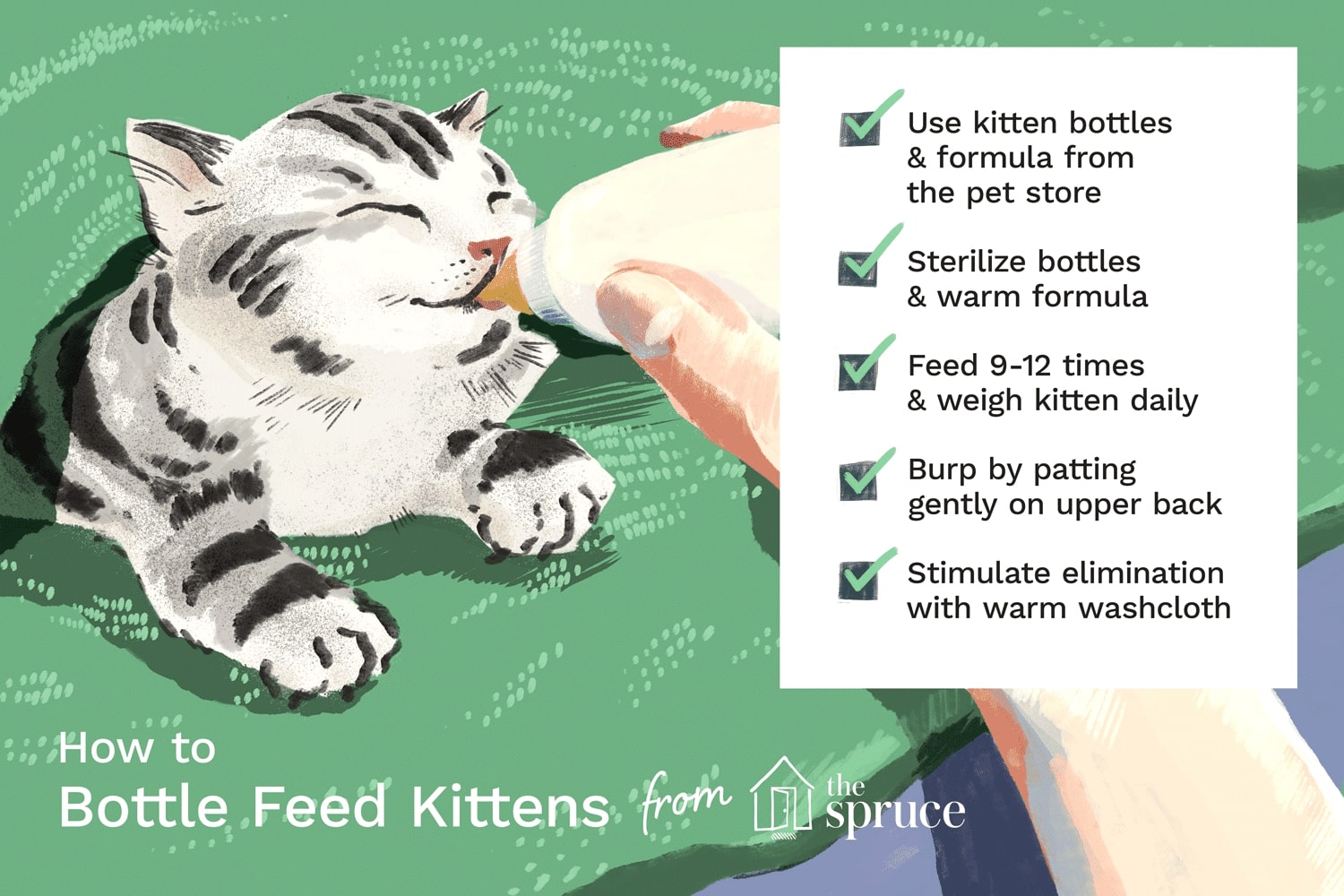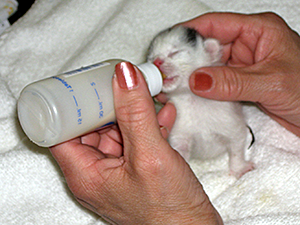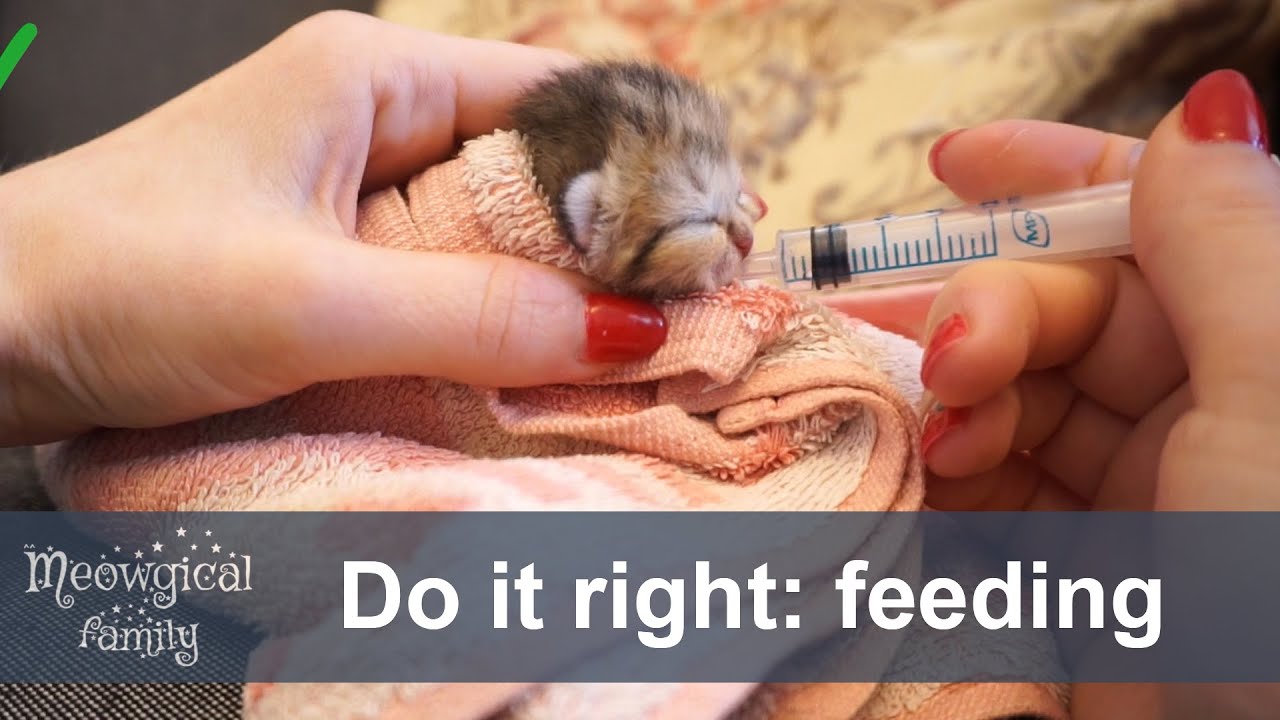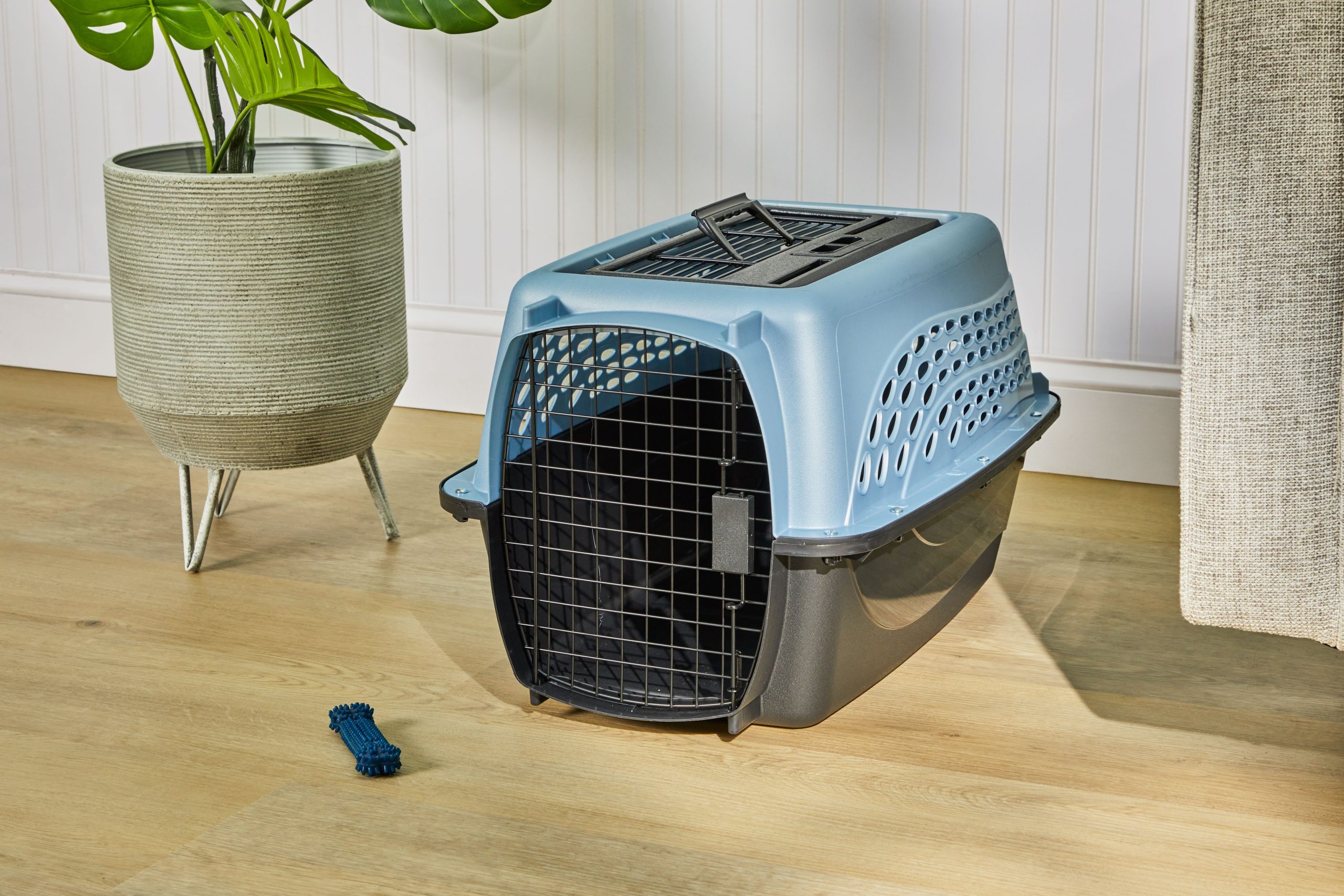How to Feed a Newborn Cat: Essential Tips for Beginners

How to Feed a Newborn Cat: Feed a newborn cat is essential for its health and growth. Newborns rely on proper nutrition to thrive.
In the first few weeks of life, kittens are fragile and dependent. They need special care and attention. A mother cat usually provides milk, but not all newborns have that option. Orphaned kittens require extra help from humans. Understanding how to feed them is crucial.
They need the right formula, feeding techniques, and schedules. It can be overwhelming for new pet owners. However, with the right guidance, you can ensure these tiny creatures get the nutrition they need. This guide will walk you through everything you need to know about feeding a newborn cat. Your care can make a big difference in their lives.
Introduction To Newborn Cat Care
Feeding a newborn cat is very important. Proper feeding helps them grow strong. Newborn kittens need special milk. Regular cow’s milk can upset their stomachs. Use kitten formula instead. Follow the instructions on the package carefully.
Newborns eat every 2 to 3 hours. Tiny stomachs require small amounts often. Use a bottle with a small nipple. This helps them drink easily. Monitor their weight weekly. A healthy kitten gains weight regularly.
Keep kittens warm while feeding. They cannot regulate their body heat well. Warmth is essential for their health. Pay attention to their behavior too. If they seem weak or sleepy, consult a vet.
Preparing For Kitten Arrival
Gathering the right supplies is very important. Start with kitten food. Choose food made for young cats. They need special nutrients to grow.
Next, get a litter box. A small box works best for tiny kittens. Use a safe litter that is gentle on their paws.
Don’t forget toys. Kittens love to play. Simple toys like balls or soft mice will keep them happy.
Creating a safe space is also key. Find a quiet area for the kitten. This should be away from noise and other pets.
Make sure the area is warm and cozy. Use a soft blanket or bed for comfort. Kittens need a lot of rest.
Assessing Kitten’s Feeding Requirements
Feeding a newborn cat needs careful attention. First, check the kitten’s age. Kittens under two weeks old need mother’s milk or a special formula. At three to four weeks, they can start soft food. Gradually introduce solid food at four weeks.
Look for hunger cues. Kittens may cry or knead with their paws. They might also lick their lips or nuzzle around. These signs mean they need food. If the kitten is restless or searching for milk, it is likely hungry.
Always monitor the kitten’s weight. A healthy gain shows they are eating enough. If unsure about feeding, consult a vet. Proper care is key to a kitten’s growth.
Choosing The Right Kitten Formula
Choosing the right kitten formula is very important. It helps them grow strong and healthy. There are different types of kitten milk replacers available. Some are made from cow’s milk, while others are specially made for kittens.
Comparing types of kitten milk replacers can help you decide. Here’s a quick look:
| Type | Pros | Cons |
|---|---|---|
| Powdered Formula | Easy to store, cheap | Needs mixing, may not be as rich |
| Liquid Formula | No mixing, ready to use | More expensive, shorter shelf life |
| Homemade Formula | Customizable, fresh | May lack nutrients, hard to balance |
Understanding the importance of nutritional content is key. Kittens need proteins, fats, and vitamins. Always check the label for these nutrients.
Feeding Techniques For Newborns
Feeding a newborn cat requires care. Bottle feeding is common. Use a clean, soft bottle. Ensure it has a small nipple. The nipple must allow milk to flow slowly.
Check the temperature of the milk. It should be warm, not hot. Test it on your wrist. It should feel comfortable.
Hold the kitten in a natural position. Support its head gently. Place the nipple near its mouth. Wait for it to latch on.
If the kitten does not latch, try again. Patience is key. Ensure the kitten is comfortable. A proper latch helps with suckling.
Watch for signs of satisfaction. The kitten should suckle steadily. If it seems frustrated, check the nipple size.

Credit: www.animalalliancenyc.org
Frequency And Amount Of Feedings
Feed Newborn cats need to eat often. A good feeding schedule is key. Feed them every 2 to 3 hours. This helps them grow strong and healthy.
Start with small amounts of food. A newborn kitten needs about 8 to 10 ml of formula at each feeding. As they grow, increase the food amount. By four weeks, they may eat 30 ml or more.
Watch their weight. Adjust portions based on their growth. Kittens should gain weight steadily. If they do not, check with a vet.
Monitoring Kitten Growth And Health
Monitoring the growth of a kitten is very important. Check their weight regularly. Kittens should gain about 10-15 grams each day. Use a small scale for accurate readings.
Write down the weight each week. This helps track their growth. If a kitten loses weight, it may be a sign of illness. Look for signs like not eating or being very sleepy.
Check their body shape too. A healthy kitten has a round belly. Thin kittens might need more food. Dehydration is also a concern. Check if their gums are pink and moist.
Watch their behavior. If they are not playing or crying too much, it may be time to see a vet. Keeping an eye on these signs helps keep your kitten healthy.
Transitioning To Solid Foods
Start introducing solid food at about four weeks. Kittens need time to adjust. Begin with soft, wet food. This helps them transition smoothly.
Look for high-quality kitten food. It should have a good balance of proteins and fats. Check the label for essential nutrients. Kittens need extra energy to grow.
Choose foods made for kittens. They are different from adult cat food. Offer small amounts at first. Gradually increase the portion as they eat more.
Troubleshooting Common Feeding Issues
Feeding refusal can be frustrating. Some kittens may not eat. Try to keep the feeding area quiet. Make sure the food is warm. Kittens often prefer warm food. If they still refuse, check their health. A vet visit may be needed.
Managing overfeeding is also important. Too much food can cause problems. Follow feeding guidelines carefully. Watch for signs of discomfort. If your kitten seems bloated, reduce the food amount.
Underfeeding is another issue. Kittens need food every few hours. Look for signs of hunger. They may cry or become restless. Adjust the feeding schedule if needed. Always ensure fresh water is available.

How to Feed a Newborn Cat
Credit: m.youtube.com
Caring For Orphaned Kittens
Caring for orphaned kittens is very important. These tiny cats need special help. They rely on humans for food and warmth. Feeding them correctly is crucial for their growth.
Seek veterinary assistance right away. A vet can guide you on feeding schedules. They can also check for health issues. Follow their advice closely for the best care.
Use a kitten milk replacer. Regular cow’s milk is not safe. Feed them with a bottle or syringe. Make sure the milk is warm but not hot.
Monitor their weight each week. Healthy kittens gain weight steadily. If they lose weight, contact a vet. They may need special care.
Keep them warm and cozy. A small blanket or heating pad helps. Orphaned kittens need a safe place to sleep.
Hygiene And Cleanliness During Feedings
Keeping feeding equipment clean is very important. Dirty tools can make kittens sick. Rinse all feeding items with hot water after each use. Use a mild soap to wash bottles and nipples. Make sure to remove all milk residue. Rinse them well to avoid soap left behind.
After washing, dry everything with a clean towel. This helps to stop germs from growing. Store feeding items in a clean place. Avoid touching them with dirty hands. This keeps the equipment safe for your kittens.
Maintaining kitten hygiene is key for their health. Always wash your hands before handling them. A clean environment helps kittens grow strong. Regularly clean their feeding area too. This makes feeding time safe and pleasant.

How to Feed a Newborn Cat
Credit: www.thesprucepets.com
Conclusion: Fostering Healthy Growth
Feed a newborn cat is very important. Start with a good kitten formula. Use a bottle made for kittens. This helps them drink easily.
Feed small amounts every 2-3 hours. This helps their tiny stomachs. Always check the temperature of the milk. It should be warm, not hot.
Watch for signs of hunger. Kittens may meow or nuzzle. Also, keep their environment clean. A clean place helps them grow healthy.
Encouraging responsible pet ownership is vital. Teach others about proper feeding. Share knowledge about caring for newborns. This helps all kittens have a good start.
Frequently Asked Questions
How Often Should I Feed A Newborn Cat?
Newborn cats should be fed every two to three hours. Their tiny stomachs require frequent small meals for proper growth. It’s essential to maintain this schedule for at least the first four weeks of their life. Consistency in feeding helps ensure they receive adequate nutrition.
What Is The Best Formula For Newborn Kittens?
The best formula for newborn kittens is a commercial milk replacer. Look for products specifically designed for kittens, as cow’s milk can be harmful. Brands like KMR (Kitten Milk Replacer) are highly recommended. Always follow the instructions on the packaging for proper mixing and feeding.
Can I Use A Regular Bottle To Feed Kittens?
Yes, you can use a regular bottle to feed kittens. However, ensure the nipple has a small hole for controlled flow. Specialized kitten feeding bottles are available and often work better. Monitor the kitten while feeding to prevent choking or aspiration.
How Do I Know If A Kitten Is Getting Enough Milk?
You can tell if a kitten is getting enough milk by monitoring its weight. A healthy kitten should gain about 10-15 grams daily. Additionally, look for signs of contentment after feeding. A satisfied kitten will often purr or sleep comfortably.
Conclusion
How to Feed a Newborn Cat: Feed a newborn cat is essential for its growth. Choose the right formula for kittens. Feed them small amounts frequently. Keep them warm and comfortable during feeding. Always use clean bottles or syringes. Monitor their weight to ensure they thrive.
Consult a vet for any concerns. With proper care, your kitten will grow healthy and strong. Enjoy this special time with your new furry friend. Feeding them right lays the foundation for a happy life together.






